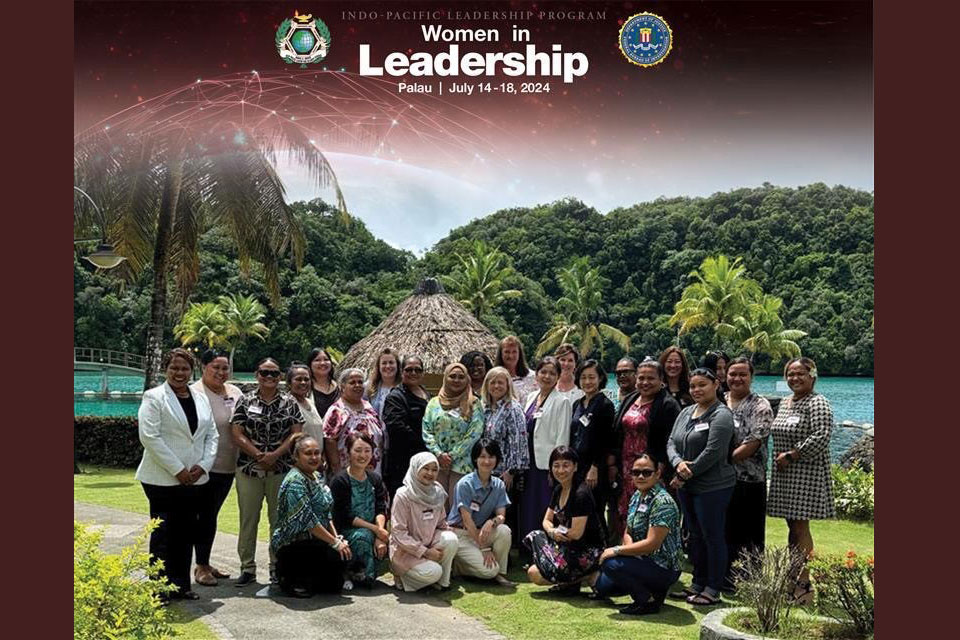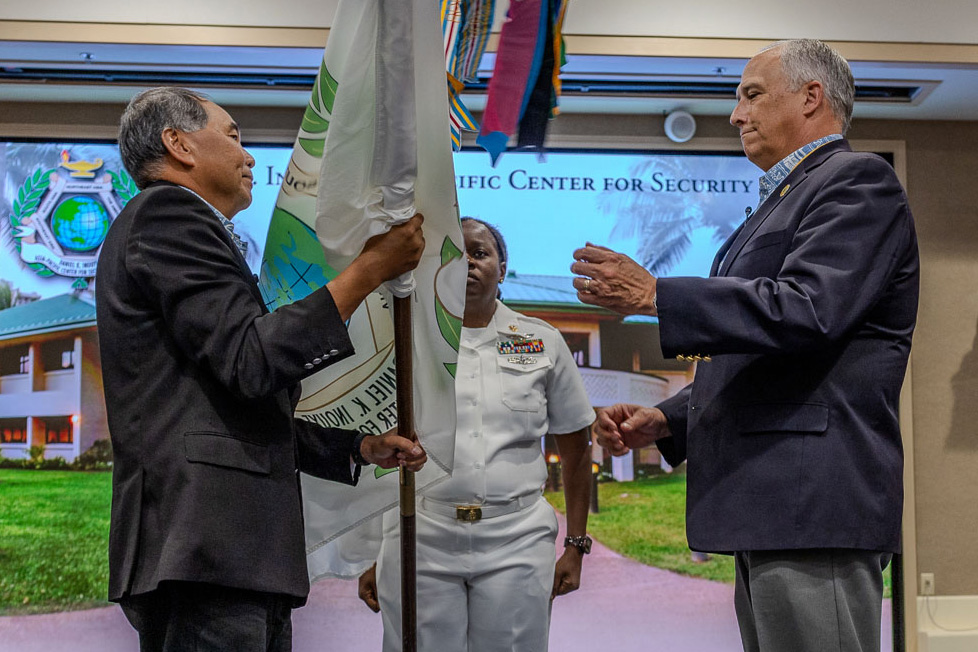Panel presentation
Two DKI APCSS faculty recently participated in the U.S. Naval War College’s 9th Annual Symposium on Women, Peace, and Security which was held there April 26-28, 2023.
Dr. James Minnich contributed with a book chapter and panel presentation on “Politics of Belonging: Men as Allies in the Meaningful Inclusion of Women in the Security Sector.” During his talk, he discussed how women’s inclusion in the security sector is increasingly being seen as a matter of national security as nations struggle to fill ranks.
Minnich further stated that “To address this security dilemma, many more women must work alongside men in defense, intelligence, police, and border protection.” Unbarring the door to women through legislation and policy is a typical approach toward gender integration. It is needed, but it is not enough. Inclusion and integration are used interchangeably. They are not the same. Yes, both bring women into the security sector, but integration expects women to adapt to an existing system, while inclusion ensures that the system adapts to women. A gender-integrated approach permits women to serve alongside men in masculinized units with some accommodations but little acceptance. Such organizations are male-dominant, exhibit deep-seated masculinized cultures, forge obstacles to women’s full participation, and experience high levels of sexual violence. A gender-inclusive approach is different as it merges men and women with full system access. In these organizations, the default gender is not male, all are valued, barriers for women are eliminated, and the structure and its leaders do not permit the “strong” to prey on the “weak.”
This talk (and book chapter) drew upon personal experiences to consider how leaders create cultures of belonging for women’s meaningful inclusion in the security sector.
Dr. Miemie Winn Byrd also provided a book chapter and talk on “Women on the Frontlines of Revolution in Myanmar.” She discusses how the women use non-lethal means to fight the junta including strategic communication.
According to Dr. Byrd, “this uprising was specifically unusual because of the women’s participation. Their participation brings in a lot of innovative ways in non-lethal way to attack the military. As a result, the military is losing ground and as of right now the military controls less than half of the country…. the other half is being controlled by ethnic armed organizations and people’s defense forces and the national unity government. These are all Coalition of resistance forces and why it is one of the reasons is the women are coming up with strategies and tactics that are non-lethal but they’re very effective.”
“[Women] are also the primary group of people that are mobilizing and keeping the population mobilized using a lot of stratcom strategies. Many of the women that I interview seem to almost innately understand how you do stratcom to keep the people communicate with the people to keep them mobilized…. There are some of the women online that are …mobilizing people and one young woman is a major fundraiser. Overnight, she fundraised and raised millions of dollars…through a lot of the Myanmar diaspora…. the Myanmar diaspora across the globe is also mobilized and again it is the work of these women as well and they’re utilizing social media to do that.”
Dr. Miemie Byrd’s panel presentation
The WPS Symposium was led by former DKI APCSS faculty member Dr. Sira Yamin who holds the Ambassador Swanee Hunt Named Women, Peace, and Security Chair at the Naval War College.









Leave A Comment